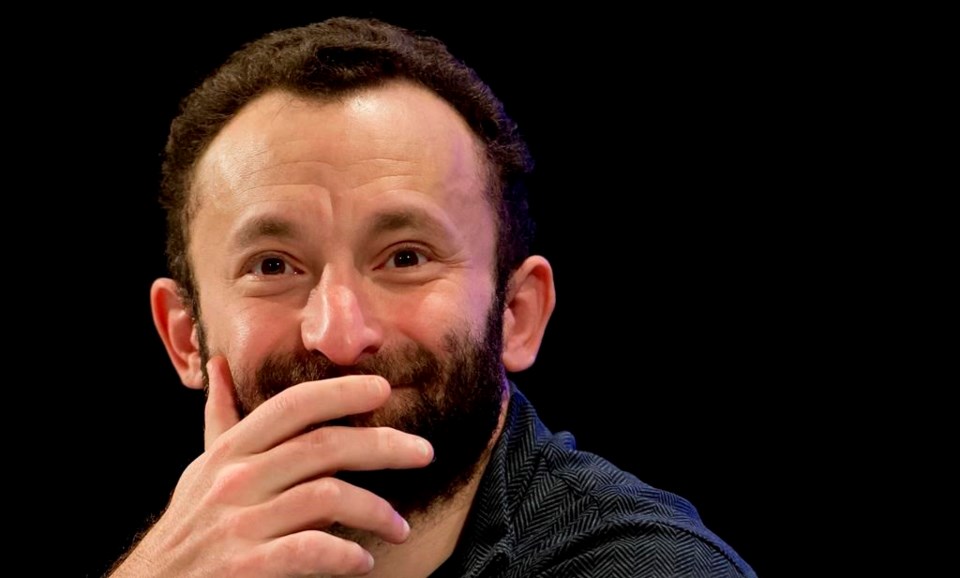Kirill Petrenko thought back to the spring of 2020, when his first season as chief conductor of the Berlin Philharmonic was abruptly stopped by the coronavirus pandemic.
“We all were very destroyed because at a certain point we thought no one needs us anymore,” he said. “Their life goes on. The concert halls are closed. The theaters are closed. Some people are making their jobs, but we are sitting at home.”
Public performances were suspended on March 12, 2020. When concerts resumed with a chamber-sized orchestra in Berlin’s empty Philharmonie that May 1 with a digital feed, Petrenko likened it to when Glenn Gould abandoned playing piano live and retreated to the recording studio.
Regular performances in front of a full audience didn’t return until May 2022.
“Then we understand one more time a little bit what our profession is about, because of communication,” Petrenko said during a Zoom interview with U.S. media on Monday. “It’s not just music-making, it’s music-making in front of someone or for someone or to provide our knowledge but also to change someone who is in this room right now, This is what was missing so much.”
Petrenko will lead the Berlin Philharmonic in their first U.S. tour in six years. He conducts Mahler’s Seventh Symphony at Carnegie Hall on Nov. 10 and 12, and has a concert in the middle with Andrew Norman’s “Unstuck,” Mozart’s Violin Concerto No. 1 with soloist Noah Bendix-Balgley and Korngold’s Symphony in F-sharp. The tour includes the Mahler in Chicago (Nov. 16); Ann Arbor, Michigan (Nov. 19); and Naples, Florida (Nov. 22); and the other program in Boston (Nov. 13), Ann Arbor (Nov. 18) and Naples (Nov. 21).
The orchestra has played 74 Carnegie concerts, starting with its first U.S. tour in 1955. It is returning to New York for the first time since 2016.
More than 30 musicians will participate in education efforts, principal horn Stefan Dohr said, including master classes, question-and-answers sessions with educators, talks with students and chamber concerts at schools, WQXR radio will broadcast the Nov. 10 performance. As part of the tour, an American Circle support group will be launched while at Carnegie.
“We aim to build an American family of friends and donors for the orchestra,” said Andrea Zietzschmann, who became the orchestra’s general manager for the 2017-18 season.
Petrenko is Berlin’s fourth chief conductor in seven decades. Now 50, he was born in Omsk, then part of the Soviet Union, in 1972, and his family moved to Austria when he was 18. Having studied piano, he conducted at the Vienna Volksoper from 1997-99, served as music director of Germany’s Meininger State Theater from 1999-02 and spent five years as music director of Berlin’s Komische Oper.
Petrenko first guest conducted Berlin in 2006 and a decade later was hired as music director for the 2019-20 season. He took over an orchestra steeped in a resonant and pristine sound.
“The Berlin Philharmonic is the most special orchestra in the world. It takes a little time for a conductor to transform such an orchestra sound-wise to what a conductor is imagining,” Petrenko said. “The Berlin Philharmonic first of all always should sound like the Berlin Philharmonic. I don’t want to break some traditions. Some natural sounds just come out of this orchestra. I would like have, so to say, my stamp on it. And it is first of all based on a beautiful, huge and transparent string sound.”
His goal is to combine woodwinds, brass and percussion to create a sound that is “big, transparent and light.” He says it should be different in Debussy than Brahms, while at the same time the orchestra will refine connections to German and Austrian traditions of Mozart, Brahms, Richard Strauss, Mahler and Schubert.
“This sort of work will take at least five or six years more,” he said. “Then we can talk about what happened, what changed, what we preserved, what we’d like to achieve, what we’d like to transform, what we’d like to develop again.”
Ronald Blum, The Associated Press




